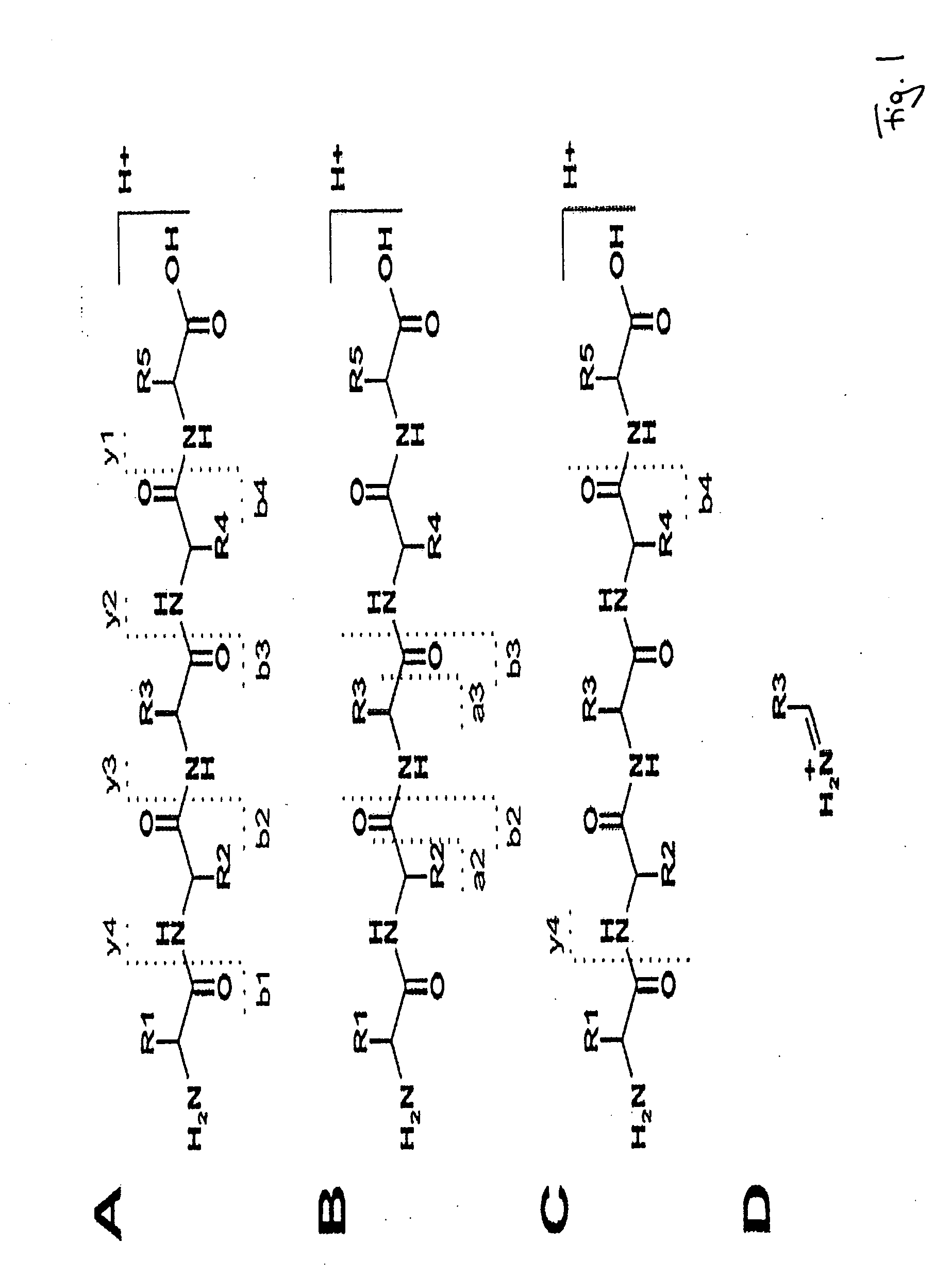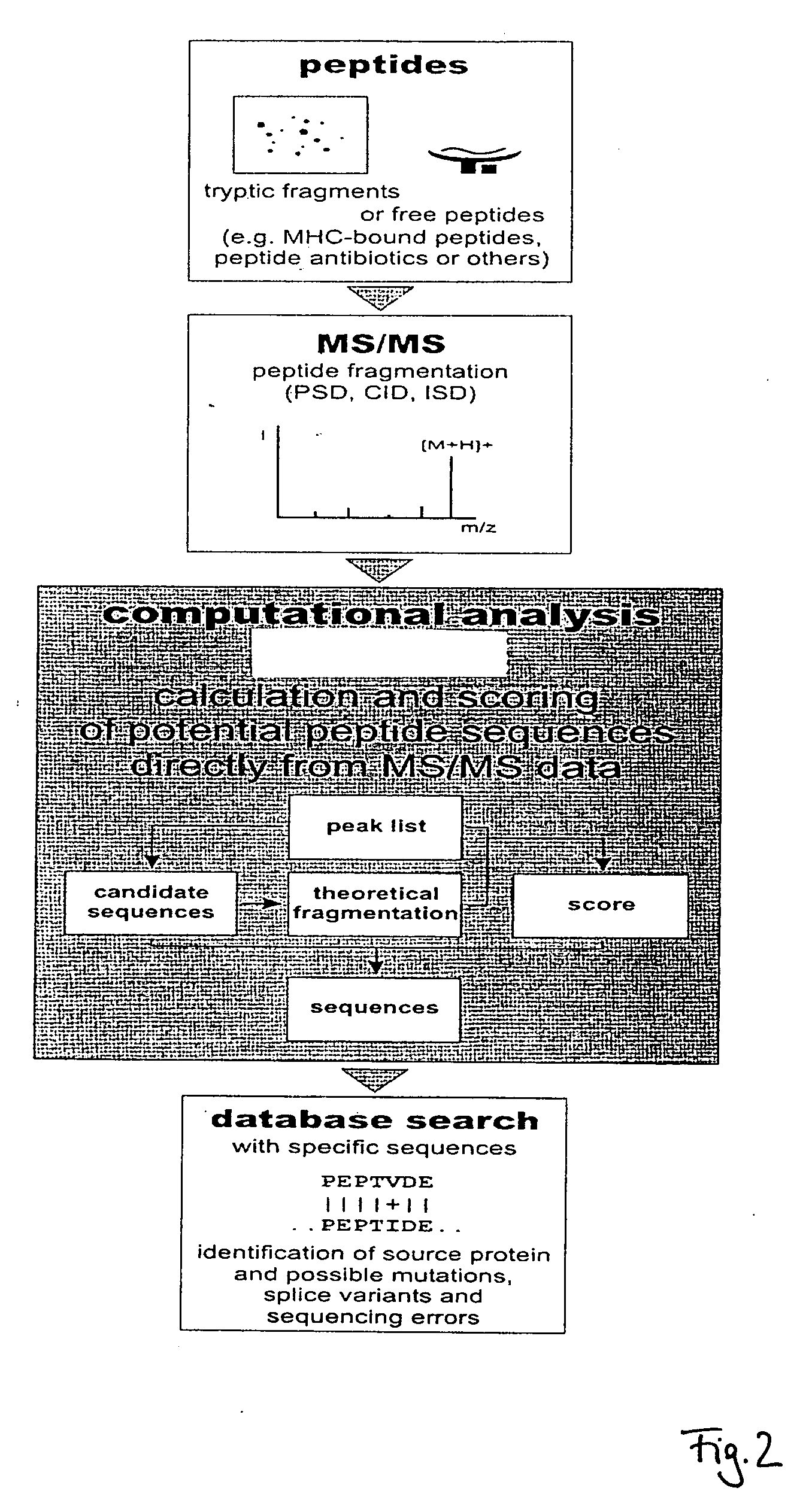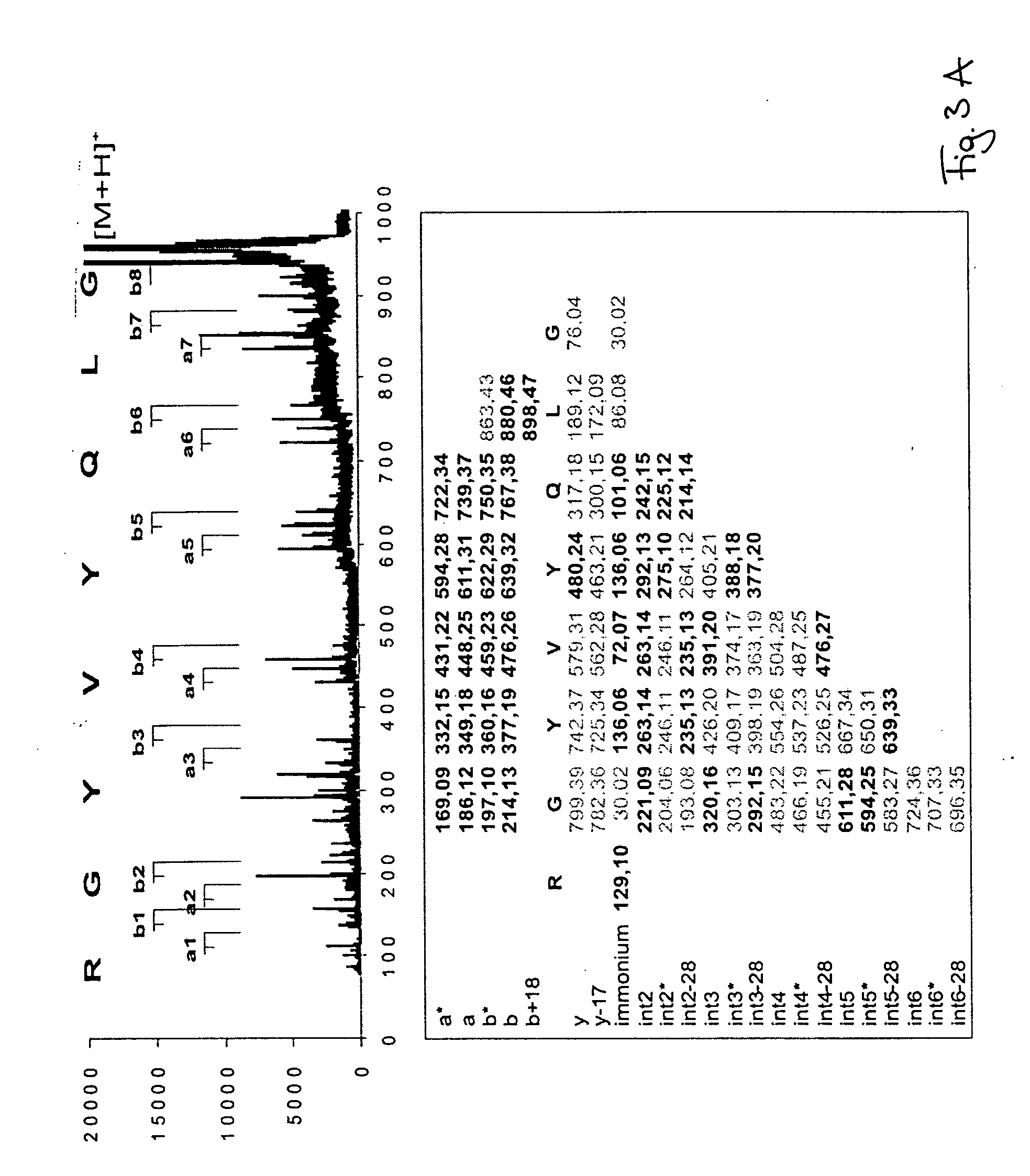Peptide sequencing from peptide fragmentation mass spectra
a technology of mass spectra and peptides, which is applied in the field of peptide sequencing from peptide fragmentation mass spectra, can solve the problems of limiting the step of identifying these proteins, increasing the labor involved, and still time-consuming identification of these proteins
- Summary
- Abstract
- Description
- Claims
- Application Information
AI Technical Summary
Benefits of technology
Problems solved by technology
Method used
Image
Examples
Embodiment Construction
[0021] Measurements were done with Bruker-Daltonics reflector MALDI-TOF mass spectrometer Reflex II with PSD and CID capabilities. Argon was used as a collision gas, α-HCCA as matrix. The samples were prepared by the dried droplet procedure. A peptide mix containing angiotensine I, angiotensine II, and substance P was used for external mass calibration. The PSD and CID measurements were calibrated with ACTH clip. Mass accuracy of peptide mass measurement was 0.1 Da. Mass accuracy of peptide fragment mass measurement was 0.7 Da. The synthetic peptides were custom-synthesized by EMC-microcollections, Tübingen, Germany. 10-100 pmol of peptide sample was used for the analyses. Tryptic peptides were generated by digest of albumin from a 1-dimensional SDS PAGE electrophoresis gel band. The database search was done with BLAST (BLASTP 2.2.5) using SwissProt of October, 2003. MASCOT MS / MS ion searches were performed without taxonomy restrictions using NCBI database as of October, 2003.
[0022...
PUM
 Login to View More
Login to View More Abstract
Description
Claims
Application Information
 Login to View More
Login to View More - R&D
- Intellectual Property
- Life Sciences
- Materials
- Tech Scout
- Unparalleled Data Quality
- Higher Quality Content
- 60% Fewer Hallucinations
Browse by: Latest US Patents, China's latest patents, Technical Efficacy Thesaurus, Application Domain, Technology Topic, Popular Technical Reports.
© 2025 PatSnap. All rights reserved.Legal|Privacy policy|Modern Slavery Act Transparency Statement|Sitemap|About US| Contact US: help@patsnap.com



